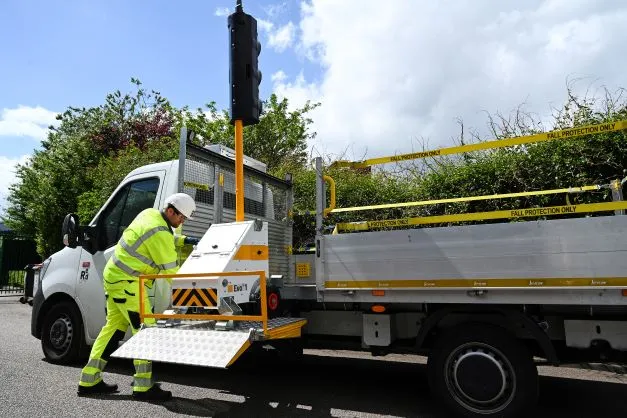
The SAW III scale is OIML 76 certified and suitable for enforcement weighing of transport trucks. IRD’s SAW I and II models were portable wheel load weighers with a strong reputation for durability.
New features introduced with this version of the SAW scale are an improved zero-setting function, a single NiMH battery pack with battery status display, an improved charge cycle, IP 65 rated interface connectors, and Bluetooth compatibility.
The SAW III scale is also available in a dynamic weighing version that can be used for screening vehicles at slow speed using weigh-inmotion (WIM).
New software is available for both static and dynamic scales. The VectorSense tyre sensor suite also being featured by IRD is an in-road sensor technology that provides vehicle position and individual tyre footprint data for use in traffic data collection programs, commercial vehicle operations (CVO), and toll road operations. Their ability to distinguish vehicle types by tyre characteristics makes these sensors particularly well suited to multi-modal traffic data collection. VectorSense sensors provide data on all types of vehicles, enabling engineers and planners to collect and analyse traffic data to optimise infrastructure investments such as bike lanes, bike paths, and bike share locations.










